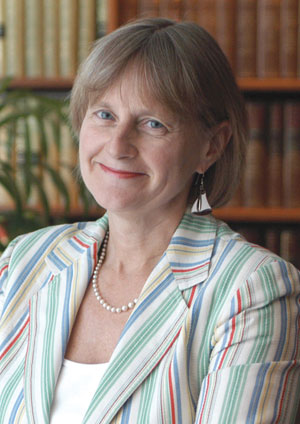An Ontario Court of Appeal justice has spoken out against trial judges who allow testimony from expert witnesses whose opinions often turn out to be “junk science.”

“Permitting experts to give evidence on matters that are commonplace or for which they have no special skill, knowledge, or training wastes both time and resources and adds stress to an already overburdened justice system,” wrote Justice Michael Moldaver in a recent judgment for a panel that also included justices Eleanore Cronk and Robert Blair.
“Apart from trial economy, trial judges who fail to properly perform their gatekeeper function run the risk of having their decision-making function usurped or severely eroded by ‘expert generalists’ who profess to know something about everything and who are only too willing to provide the court with a ready-made solution for any contentious issue that might exist,” said Moldaver.
“The problem with such witnesses is that while they appear knowledgeable and generally come across well, upon closer scrutiny, their opinions may well turn out to be little more than concoctions consisting of guesswork, speculation, commonplace information and junk science, with a hint of valid science thrown in for good measure.”
Moldaver made the comments in giving the court’s reasons in Johnson v. Milton. The case, heard by Ontario Superior Court Justice Gerald Taylor in 2006, involved a negligence claim against the Corporation of the Town of Oakville in relation to a 1992 accident.
In September 1992, Robert Johnson and his wife, Nelly, were riding their tandem bicycle on a road in the town. They lost control of the bike while travelling downhill toward a single-lane bridge and hit a rock embankment, killing the husband and severely injuring the wife.
The wife brought the action on her own and on behalf of her infant children, claiming Oakville hadn’t properly maintained the road where the accident occurred.
The appeal court altered Taylor’s decision, which found that Oakville was entirely responsible for the accident and ordered the town to pay “substantial damages.” The appeal court found that Oakville should bear only 60 per cent of the liability.
Moldaver’s comments regarding “expert generalists” came in an analysis of the trial testimony of Zygmunt Gorski, a plaintiff witness who spoke as an expert in accident reconstruction.
His testimony, which went ahead despite Oakville’s objection, included analysis of factors that might have contributed to the accident, including road topography, signage, the effect of bumps on a bike rider’s ability to stay in control, and a number of other matters.
The appeal court ruled Oakville was not prejudiced by Gorski’s testimony, as the trial judge’s findings on factual causation strayed from his opinion.
However, Moldaver made a point of making clear his view that the trial judge’s “‘let-it-all-in’ approach” to the expert’s testimony must be avoided.
“Courts must be vigilant to guard against such impermissible evidence,” wrote Moldaver. “It is trite law that expert witnesses should not give opinion evidence on matters for which they possess no special skill, knowledge or training, nor on matters that are commonplace, for which no special skill, knowledge or training is required.”
Philippa Samworth, an insurance defence lawyer specializing in accident benefits for Dutton Brock LLP, agrees with Moldaver and says judges aren’t fulfilling their duties as gatekeepers in terms of expert evidence.
“There is an awful lot of what we call ‘junk science’ going in - that is, evidence of people, not that their qualifications are bad, but the evidence they’re giving is exactly the issue that the trial judge has to decide, number one. And number two, it’s really no better evidence than a layperson might have,” says Samworth.
Paul Pape, who represented the Johnson family in the case, says the tendency has been for trial judges to allow questionable testimony from experts and “worry about it later.”
“The comments of Justice Moldaver are worth having a look at, because . . . at some stage, trial judges are going to be more rigorous in restricting the use of expert evidence,” says Pape.
Samworth notes that the leading case in this area, the Supreme Court’s 1994 case R. v. Mohan, says it’s important to take a look at expert testimony to consider whether it’s valid science.
“You can’t just say, ‘The guy’s an expert and he’s going to help me in this case.’ You’ve got to look at whether there’s a solid basis in the scientific community to this type of evidence,” she says.
Excessive expert testimony is a major contributor to trial delays, says Samworth, noting that former associate chief justice Coulter Osborne said in his report on Ontario’s civil justice system that steps must be taken to cut down on and improve the quality of expert testimony.
While Moldaver’s comments are directed at trial judges, Samworth says lawyers also must be more vigilant in considering the quality of scientific evidence offered by their expert witnesses.
“It falls not only to trial judges - it falls to us as litigants to take a closer look at what we present to the court,” she says.

 “Permitting experts to give evidence on matters that are commonplace or for which they have no special skill, knowledge, or training wastes both time and resources and adds stress to an already overburdened justice system,” wrote Justice Michael Moldaver in a recent judgment for a panel that also included justices Eleanore Cronk and Robert Blair.
“Permitting experts to give evidence on matters that are commonplace or for which they have no special skill, knowledge, or training wastes both time and resources and adds stress to an already overburdened justice system,” wrote Justice Michael Moldaver in a recent judgment for a panel that also included justices Eleanore Cronk and Robert Blair.